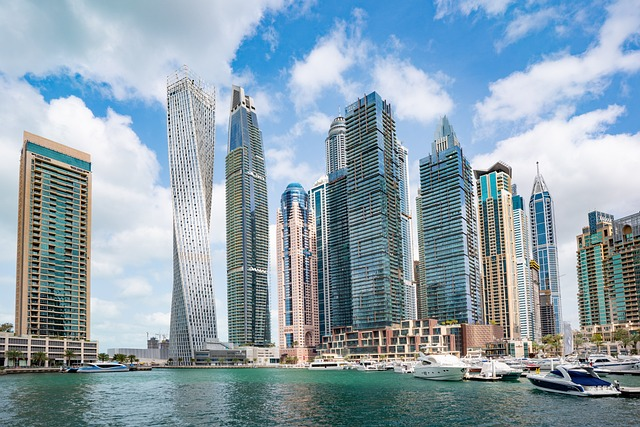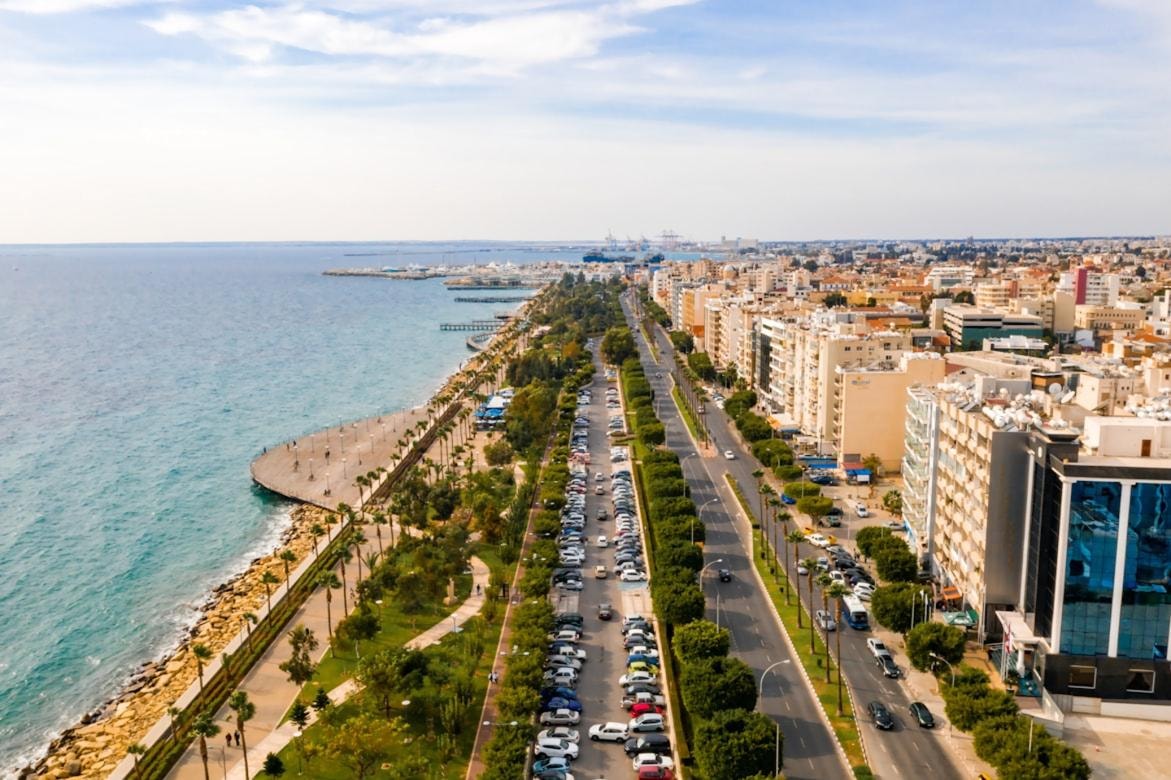Quick takeaway: In 2025, the most investor-friendly real estate markets combine stable economies, clear property laws, and simple residency pathways. Top picks include the United Arab Emirates, Cyprus, Türkiye, Greece, Spain, the United Kingdom, and Mauritius. Start by confirming foreign-ownership rules, taxes, and financing options, then target neighborhoods with solid rental demand and infrastructure.
Table of Contents
Introduction
Real estate remains a core wealth builder, but cross-border investing works best when rules and risks are clear.
Property can generate cash flow and long-term appreciation across diverse markets. Success hinges on understanding each country’s laws, financing, and compliance requirements. Many destinations also offer official permanent residency or citizenship through official golden visa programs and investment programs, making them attractive options for foreign investors seeking to buy property abroad.
Certain nations offer more favourable opportunities for investors, granting incentives such as permanent residence, golden visa programs, and even citizenship through an investment program.
In order to invest in rental properties or find real estate at affordable prices in the best countries in the world can be challenging, especially when considering property values. It is crucial to understand foreign ownership laws, as regulations can vary significantly depending on the buyer’s home country.
The process to buy property can differ across countries, and understanding these differences is a key consideration for international investors.
Importance of Real Estate Investment
Over time, property tends to trend upward and diversifies global portfolios.
Despite periodic downturns, real estate has historically rewarded patient investors. Non-residents can often buy property abroad, enabling high-net-worth individuals to spread risk geographically and tap multiple rental markets.
Factors to Consider when Investing in Real Estate
Several factors can impact your investment decision in a foreign country. Ideally, you want to build wealth and at times this will be as non-residents.
Screen markets systematically before you buy. Prioritize these checks to protect returns and reduce friction:
- Economic and financial stability: Favor steady GDP, inflation control, and sound banking.
- Political stability: Look for predictable policy and low corruption risk.
- Legal and regulatory clarity: Verify foreign-ownership rights, title security, and transaction steps for non-residents.
- Market trends: Track supply, demand, days on market, and price momentum.
- Pricing and affordability: Compare property prices to income and rents to spot value.
- Infrastructure: Weigh current and planned transport, utilities, and urban development.
- Taxes: Model income, property, and capital-gains taxes to see true net yields.
- Financing: Confirm mortgage access and terms for non-residents.
- Asset type: Choose residential, commercial, or short-term rentals based on goals and risk.
- Rental yields: Target areas with durable tenant demand and realistic cash flow.
- Location quality: Proximity to jobs, schools, transit, and tourism lifts occupancy.
- Market liquidity: Review recent transaction volumes and exit timelines.
- Owner protections: Understand dispute resolution and investor safeguards.
Top 7 Countries for Real Estate Investments
We have outlined the top ten countries for real estate investment in 2025. The top countries for real estate list is truly worldwide and takes into account
- United Arab Emirates;
- Cyprus;
- Türkiye;
- Greece;
- Spain;
- United Kingdom; and
- Mauritius.
Many of these countries offer investors residence or, at times, citizenship in the country if they meet the qualifying criteria. In several cases, purchasing real estate worth a specified minimum amount can make you eligible for an investment program that grants residency or citizenship by investment. Immigration is an added benefit that should be considered in an investor’s decision.
Top Countries for Real Estate Investment
United Arab Emirates

The real estate investment outlook for the United Arab Emirates (UAE) remains positive in 2025, supported by steady non-oil activity and a gradual hydrocarbons recovery. The Central Bank of the UAE estimates 2024 real GDP growth at 3.9% and forecasts 4.7% for 2025. (CBUAE Quarterly Economic Review, Mar 2025)
Population growth continues to underpin housing demand. Official statistics show 10,678,556 residents in 2023 (up from 10.29m in 2022). (UAE Government Fact Sheet / FCSC)
Policy remains investor-friendly. Foreigners can own freehold property in designated areas in Dubai’s freehold zones (UAE Gov’t: Expatriates buying property) and, since 2019, in Abu Dhabi’s investment areas. The UAE’s legal framework strongly supports foreign real estate investment, providing asset protection and clear rights for property owners, making it an attractive destination for those seeking to diversify through foreign real estate.
Taxes. The UAE is renowned for its tax free environment, making it highly attractive for real estate investors. Property owners generally do not pay taxes on rental income or capital gains, and there is no requirement to pay taxes on most real estate investment profits. The UAE does not levy personal income tax. For individuals, real-estate investment income and capital gains are out of scope of Corporate Tax, unless conducted via a licenced business. (FTA Basic Tax Info – Natural Persons; FTA Guide – Real Estate Investment for Natural Persons) Residential leases are VAT-exempt (MoF VAT page). Note: Dubai tenants pay a 5% municipality housing fee (this is not a landlord income tax).
Capital mobility. Foreign investors can repatriate capital and profits without restrictions (subject to AML/sanctions compliance). (UAE Ministry of Investment – FAQ)
Golden Visa (Real Estate). Eligibility via property ownership of at least AED 2,000,000 (≈ USD 545,000), 10-year renewable while qualifying assets are held. Mortgaged property can qualify with a bank letter confirming AED 2m paid. Family sponsorship is available. (Dubai Land Department – Golden Visa Investor)
Investors can also consider commercial properties and real estate funds as alternative ways to participate in the UAE’s real estate market, offering further diversification and access to different segments of the property sector.
Dubai Downtown snapshot (H1 2025):
- Rental yield (apartments): ~5.79%. (Bayut Dubai Sales Market Report H1 2025)
- Two-bed apartment rent: ~AED 241,000/year (≈ USD 5,469/month).
- Effective rental income tax for individuals: 0%.
Strong infrastructure development and positive market trends are driving property transactions and supporting high gross rental yields, further enhancing the appeal of the UAE for foreign real estate investment.
Cyprus

The real estate market in Cyprus remains a popular choice in 2025, with prices and rents still rising at a steadier clip than 2023–24. The European Commission’s Spring 2025 forecast puts real GDP growth at ~3.0% in 2025 (2.5% in 2026), supported by tourism, ICT, and investment funded by the RRF. (European Commission – Cyprus forecast)
Permanent residence via investment. Cyprus grants a fast-track permanent residence permit under Regulation 6(2) for non-EU investors who meet the minimum investment requirement of at least €300,000 in qualifying assets. (new residential/commercial property, shares in a Cyprus company with staff, or regulated fund units) and meet income and due-diligence requirements. Criteria tightened 2 May 2023 including minimum annual income of €50,000 (plus €15,000 for spouse and €10,000 per dependent child). (Cyprus Ministry of Interior – PR for Investors; KPMG summary of revised criteria)
Ownership & who can buy. EU/EEA citizens buy without restriction. Non-EU buyers generally need District Officer consent under the Acquisition of Immovable Property (Aliens) Law, Cap. 109 and apply using Form COMM 145; approvals typically cover a single residence/plot. Freehold title deeds are issued by the Land Registry upon completion/transfer. (Government of Cyprus – Purchasing Property; Cap. 109 law text; Form COMM 145 (District Officer consent))
Taxes.
- Personal income tax: 0% up to €19,500; progressive bands apply above that. (Cyprus Tax Dept – Income Tax bands)
- GHS (GeSY) health contribution: 2.65% on gross rental income (capped at €180,000 of total income for the levy). (PwC – Other taxes / GHS table)
- Special Defence Contribution (SDC): 3% on 75% of gross rent (effective 2.25%) only for Cyprus tax residents who are domiciled; non-dom residents and non-residents are exempt from SDC.
- Capital gains tax: 20% on gains from disposing of Cyprus-situated real estate (with specific lifetime exemptions).
Capital mobility. There are no restrictions or delays on investment remittances and capital appreciation on investment remittances profit outflows in the Republic of Cyprus. (U.S. State Dept. – 2024 Investment Climate Statement: Cyprus)
Paphos snapshot:
- Typical gross rental yield (apartments, island-wide benchmark): ~5.41% (Q2 2025). (RICS/KPMG Cyprus Property Index Q2 2025)
- Two-bed apartment rent (Paphos): ~€1,228/month (Jan 2025 listing averages). (Cyprus Property Buyers – rental roundup)
- Effective rental income tax for individuals: 0% PIT on the first €19,500, but GHS 2.65% applies on gross rent from euro one and SDC 2.25% effective applies only if you are tax resident and domiciled.
Market pulse. The RICS/KPMG index shows apartment yields ~5.4% and continued rent growth across districts; CBC’s RPPI confirms prices still rising into Q1–Q2 2025. (RICS/KPMG Q2 2025; Central Bank of Cyprus – RPPI).
Türkiye (Turkey)

Turkey mixes upside with volatility. Inflation has eased from its 85.51% peak in October 2022 to 33.52% year‑on‑year in July 2025 as policy tightened, while growth is still projected around 3.0% in 2025. (TurkStat CPI; IMF country page)
Demand drivers. Türkiye’s address‑based population reached ~85.7 million at end‑2024, urbanization remains high, and Istanbul continues to attract domestic migrants and expats.
Who can buy & ownership form. Foreigners may buy freehold real estate across the country up to 30 hectares, subject to the 10% district cap and exclusion of military/security zones. Title is registered at the Land Registry (Tapu). (Investment Office – Acquiring Property & Citizenship)
Citizenship by investment. The real‑estate route requires a minimum USD 400,000 purchase and a 3‑year hold noted on the title. The $400k threshold has applied since June 2022 and remains in force in 2025. (Library of Congress – amendment overview)
Taxes on rental income & sales (individuals):
- Rental income tax: progressive 15%–40% after allowable deductions; non‑residents are taxed only on Turkey‑source income. (PwC Turkey – personal income tax rates)
- Capital gains on sale: gains on property held <5 years are taxed as personal income (same 15%–40% scale); exempt after 5 years.
Istanbul snapshot. A two-bedroom apartment in a good Istanbul location:
- Rental Yield: ~7.3% gross (Global Property Guide – rental yields)
- Effective Rental Income Tax: 15%–40% (progressive; depends on taxable income and deductions)
- Two‑Bedroom Apartment Rent: ₺35,000–₺60,000/month (Investropa – average rents, June 2025)
Market pulse 2025. The Central Bank’s Residential Property Price Index (RPPI) shows nominal y/y increases around 30%–33% into mid‑2025, while real (inflation‑adjusted) prices have been softer given still‑high CPI. (CBRT RPPI)
Greece

Greece still draws property investors.
Prices. The housing uptrend continues, but at a slower pace. The Bank of Greece reports apartment prices up 6.8% y/y in Q1 2025 (nationwide) (Bank of Greece note, June 20, 2025). In Athens, prime districts such as Kolonaki–Lykavittos remain among the priciest (Spitogatos SPI via Kathimerini, Jan 9, 2025).
Economy. The European Commission projects Greece’s real GDP growth to slow to around 1.9% in 2025 (after ~2.3% in 2024) (European Commission Spring 2025 Forecast).
Population trend. Greece’s population is not growing toward 11 million. ELSTAT estimates 10,400,720 residents as of 1 Jan 2024, slightly lower year‑over‑year (ELSTAT press release & tables).
Taxes. Rental income is taxed at 15% (up to €12,000), 35% (€12,001–€35,000), 45% (over €35,000) (PwC Greece – Personal income tax). The 15% capital gains tax on sales of real estate remains suspended until 31 Dec 2026 (after that date, the 15% CGT would apply unless extended again) (Hellenic Ministry of Finance – Income Taxation guide). For new‑builds, the optional 24% VAT suspension (developers’ regime) continues through 31 Dec 2025; buyers in such projects typically pay the ~3.09% transfer tax instead (PwC Tax Flash – Law 5162/2024).
Golden Visa. Law 5100/2024 raised thresholds and added conditions:
- €800,000 minimum in Attica (Athens), Thessaloniki, Mykonos, Santorini and islands with population >3,100;
- €400,000 minimum in other regions;
- €250,000 only for special cases (e.g., commercial‑to‑residential conversions or preserved buildings under restoration), all typically in a single property; short‑term letting is restricted and there’s a minimum 120 m² living area requirement for standard purchases (EY Law alert on Law 5100/2024, Apr 2024).
Athens snapshot. A two‑bedroom apartment in a good location typically looks like this:
- Rental yield (gross): ~4.2% (Athens center average; building age/finish drive variance) (Global Property Guide – Greece yields).
- Effective rental income tax: 15%–45% depending on annual rent collected (PwC Greece).
- Average asking price (2‑bed benchmark): around €5,900 per m² in Kolonaki as of July 2025 (area page trend) (Indomio market data).
Note: Many listings in Kolonaki–Lykavittos are in refurbished pre‑1975 buildings; renovated floors with balconies/views can trade well above the area average. Ask‑to‑sold discounts and building condition matter more here than in newer suburbs.
Bottom line. Greece remains investable, but the thesis in 2025 is selectivity: prime micro‑locations in Athens (and quality renovations) still see depth of demand, while yields are mid‑single digits and taxation/Golden Visa rules are stricter than in past years.
Spain

Spain’s real estate outlook in 2025 is still constructive. The European Commission projects ~2.6% real GDP growth in 2025, aided by resilient consumption and investment. (European Commission – Spain forecast)
Population growth continues to support housing demand. INE estimates 49.3 million residents as of 1 July 2025, up from 48.6m a year earlier, with net immigration the main driver of economic growth . (INE – Continuous Population Statistics)
Who can buy. Foreign buyers can purchase and hold property in Spain (NIE required), with standard freehold title registered in the Land Registry.
Golden Visa. Spain ended the investor “Golden Visa” (including the €500,000 real‑estate route) for new applications from 3 April 2025. Existing permits can be renewed under transitional rules for those seeking property overseas . (La Moncloa – official note)
Taxes (non‑residents). Rental income is taxed at 24% for non‑EU/EEA owners (on gross) and 19% for EU/EEA owners (with allowable deductions). Capital gains for non‑residents are generally 19%. (Agencia Tributaria – IRNR)
Barcelona snapshot (two‑bed in a good location):
- Rental Yield: ~5–6% (district/asset quality dependent).
- Effective Rental Income Tax: 19% (EU/EEA) or 24% (non‑EU/EEA); residents taxed under IRPF scales.
- Two‑Bedroom Apartment Rent: Using €19.5/m² as a benchmark, a 75–85 m² flat runs roughly €1,460–€1,660/month; premium districts or new builds price higher.
Market pulse (2025). Gross residential yields average ~5.6% nationwide (Q1 2025). (Global Property Guide – Spain yields) Rents remain elevated in major cities—Barcelona ended 2024 at €19.5/m²/month and was expected to keep rising in 2025 (idealista market report).
The United Kingdom

The UK property market remains one of the most closely watched in Europe, with recent market trends showing signs of renewed stability and moderate growth following a period of uncertainty. Higher borrowing costs and soft real‑income growth are still weighing on activity. The OBR projects ~1.0% real GDP growth in 2025. (OBR – March 2025 EFO)
Prices. After a 2023 dip, official data show house prices stabilising and edging up into 2025. The UKHPI puts the average UK price at ~£269k in May 2025 (+£10k YoY); England ~£290k. Rents remain high, though rental inflation is cooling. Property value appreciation is a key consideration for investors, as both property prices and real estate prices in the UK have shown resilience and potential for future growth. (UKHPI May 2025 summary)
Who can buy. Overseas buyers can purchase freehold or leasehold across England and Wales. The legal framework for foreign ownership is generally open, with few restrictions on international buyers. Financing options, including mortgages from UK and some international banks, are available to non-residents, making it easier for foreign investors to enter the market. Leasehold is 19% of all homes in England. (DLUHC – Leasehold dwellings 2023–24)
Taxes (individual owners):
- Rental income: taxed at 20% / 40% / 45% on net profit; non‑resident landlords fall under the NRL scheme (withholding can be disapplied if HMRC approves and you self‑assess). (HMRC – Non‑resident landlord scheme)
- Capital Gains Tax (residential): 18% (basic‑rate band) or 24% (higher/additional); non‑residents have been within scope on UK property gains since 2015/2019. (GOV.UK – CGT rates)
- Stamp Duty Land Tax (England & NI): base residential rates plus +5% “additional dwellings” surcharge (from 31 Oct 2024) and a +2% non‑resident surcharge where applicable. (HMRC – SDLT rates 31 Oct 2024–31 Mar 2025; HMRC – 2% non‑resident surcharge)
Investors can also consider commercial properties in the UK, which offer alternative opportunities for diversification and exposure to different segments of the property market.
Recent property transactions in key regions such as London and the South East indicate ongoing market activity and sustained investor interest.
Westminster (London) snapshot (two‑bed in a good location):
- Rental Yield (gross): ~4.1% (borough average; prime central often 3–4%). Gross rental yields are a key metric for evaluating investment returns in the UK property market. (The Times – landlords’ yields guide, May 2025)
- Effective Rental Income Tax: 20%–45% (progressive on net profit; see NRL scheme above).
- Two‑Bedroom Apartment Rent: ~£3,347/month (2‑bed average, July 2025). (ONS – Westminster rents by bedrooms)
Mauritius

The IMF projects ~3.0% real GDP growth in 2025 with inflation averaging ~3.6%, a cooler pace after the post‑pandemic rebound but still supportive for housing demand. (IMF – Mauritius country page / 2025 Article IV)
Who can buy. Foreign buyers may acquire residential property only in approved schemes — PDS/IRS/RES, Smart City (SCS) or apartments in buildings with at least two floors above ground. Buying a qualifying residential unit for ≥USD 375,000 grants a residence permit to the buyer and dependants for as long as the property is owned (no minimum stay requirement). Stand‑alone beachfront plots outside approved schemes are generally not available to non‑citizens. (EDB – Guidelines on acquisition & residency (incl. G+2))
Taxes (individual owners). Mauritius applies progressive personal income tax bands (0% / 10% / 20%) from 1 July 2025; very high‑income individuals may also be liable to a separate Fair Share Contribution. Mauritius does not levy capital gains tax on the sale of privately‑held real estate (where the transaction is not a trading activity). (MRA – Budget Highlights 2025/26; MRA – Compilation of Tax Rulings, June 2025)
Market pulse. Long‑let gross yields typically run ~3%–5% depending on area and building quality; short‑let yields can be higher but require permits and active management. (Global Property Guide – Mauritius yields)
Grand Baie snapshot (two‑bed in good location):
- Rental Yield (gross): ~3%–5% (area/builder dependent; see yield source above).
- Effective Rental Income Tax: 0%–20% (base PIT bands; additional levy only at very high incomes).
- Two‑Bedroom Apartment Rent: about MUR 60,000 / month (portal average). (PropertyCloud – Grand Baie 2‑bed listings).
Additional Factors to Consider
Tax-friendly and income-focused: The UAE and Cyprus stand out for simple personal taxation on rental income and broadly investor-friendly rules.
Solid demand, but mind the rules: Spain’s big cities continue to show strong rental demand and mid-single-digit gross yields, but non-resident taxation applies and the real-estate Golden Visa has closed to new applicants. Greece’s rental market is healthy in prime areas, though its Golden Visa thresholds rose and short-let rules are tighter than before.
Liquidity and exits: If market depth and resale speed matter most, the UK is usually the easier place to sell. Expect higher ongoing and exit taxes than in the UAE or Cyprus.
Residency or citizenship via property (at a glance):
- UAE: 10-year residency available with qualifying property ownership.
- Greece: Higher Golden Visa thresholds (generally €800k in top areas; €400k elsewhere) and extra conditions.
- Cyprus: Permanent residence available from €300k in qualifying assets.
- Spain: Real-estate Golden Visa closed to new applicants.
- Turkey: Direct citizenship via property from USD 400k, but macro volatility is a key risk.
- Mauritius: Residency with a qualifying purchase from USD 375k in approved schemes.
Operational notes: Property management can be more hands-on in Greece and Cyprus than in the UK or UAE. Always factor local tenancy rules, service charges, and building quality into yield assumptions.
Bottom line
Pick based on your goal: tax efficiency (UAE, Cyprus), income in tier-one cities (Spain, Greece), fast exits (UK), a passport route (Turkey), or straightforward residency in a stable, rules-based setting (Mauritius).
Closing note: Lead with due diligence, stress-test taxes and financing, and buy in neighborhoods with proven demand. A clear checklist and disciplined underwriting turn international property from possibility into performance.


